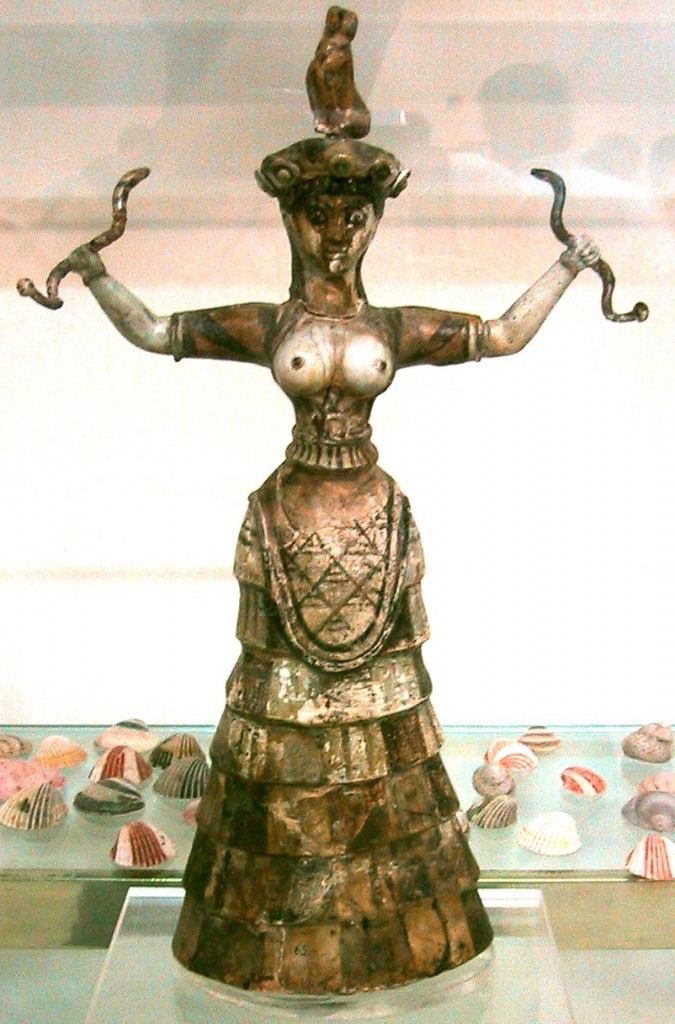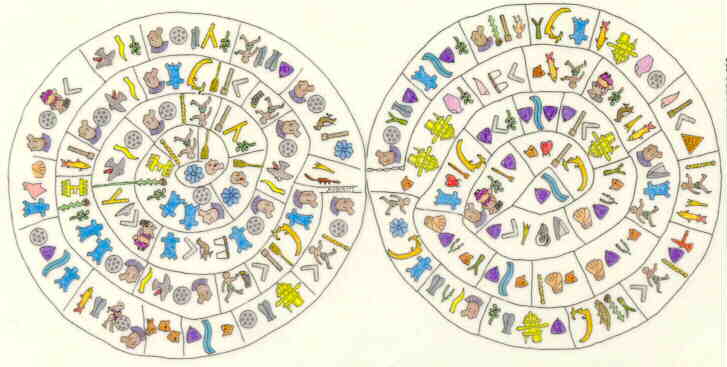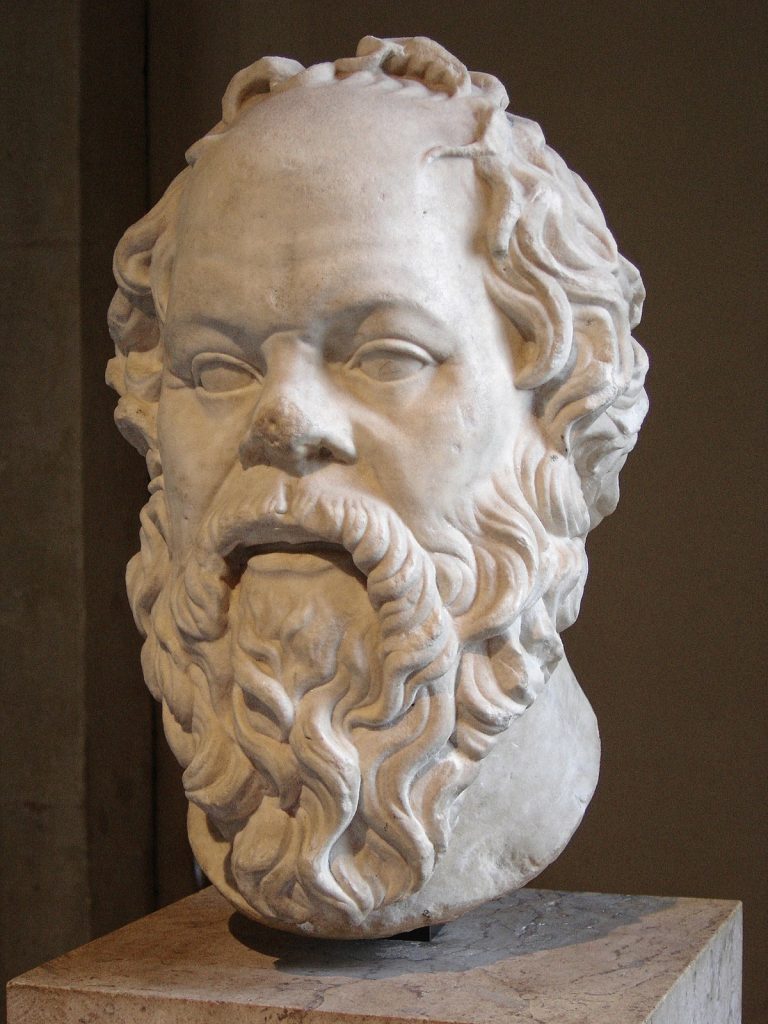 The famous Snake Goddess of ancient Crete has long attracted students of history and art. Elegant, risquée, enigmatic, she embodies the mystery and allure of Minoan civilization.
The famous Snake Goddess of ancient Crete has long attracted students of history and art. Elegant, risquée, enigmatic, she embodies the mystery and allure of Minoan civilization.
Why Topless? Why the Snakes?
 If we can interpret certain ancient myths correctly, they could lead us to more accurate and penetrating views of the history of the Earth and the solar system. They might teach us about the forces at work and explain anomalies bequeathed to us by a long-hidden past. But how can we interpret these myths, the products of minds so far removed from ours? How do we know which interpretation is correct, if any? Are we doomed to speculate without ever achieving certainty?
If we can interpret certain ancient myths correctly, they could lead us to more accurate and penetrating views of the history of the Earth and the solar system. They might teach us about the forces at work and explain anomalies bequeathed to us by a long-hidden past. But how can we interpret these myths, the products of minds so far removed from ours? How do we know which interpretation is correct, if any? Are we doomed to speculate without ever achieving certainty?
Here we will interpret two Bronze Age myths to illustrate the high scientific value such myths might contain. We will also see how easy it can be to understand a myth once the right interpretation becomes available.
The Phaistos Disk Seems to Be Trojan
 The famous spiral disk found in Phaistos, Crete in 1908 has long defied efforts to translate it or even to identify the language in which it is written or what kind of a document it might be (it is here in color to aid analysis). Though many scholars and amateurs have proposed theories and even translations, none has seemed persuasive to the great majority of observers. A skeptical view holds that the disk is a forgery, but most scholars reject this. Many scholars agree that the small sample of language in the disk makes a breakthrough very unlikely unless and until other samples of the writing are found.
The famous spiral disk found in Phaistos, Crete in 1908 has long defied efforts to translate it or even to identify the language in which it is written or what kind of a document it might be (it is here in color to aid analysis). Though many scholars and amateurs have proposed theories and even translations, none has seemed persuasive to the great majority of observers. A skeptical view holds that the disk is a forgery, but most scholars reject this. Many scholars agree that the small sample of language in the disk makes a breakthrough very unlikely unless and until other samples of the writing are found.
The Ancient Roots of Contrarianism

People occupy corners and have jurisdiction. Truth, conversely, is sovereign, making contact with all. The necessary, universal, and eternal impose on the contingent, particular, and finite. So truth, once seen, seeks a mandate, demanding to override.
Many try to align themselves with the truth in source of their own. They may claim privileged access to it, fashion themselves as sources of it, or even create personas that present them as embodiments of it. Per Yuval-Harari, you must link yourself to a transcendental thing in any battle of the wills. This will allow you to efficiently co-opt its authority for yourself.
A contrarian can be defined as someone who
